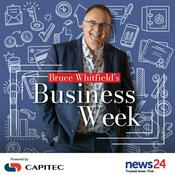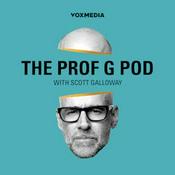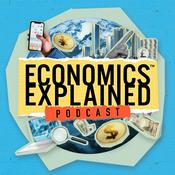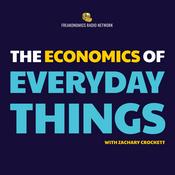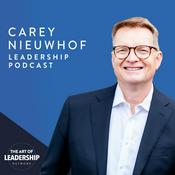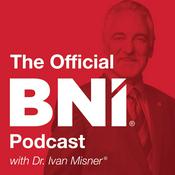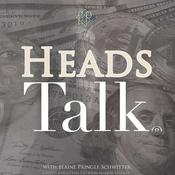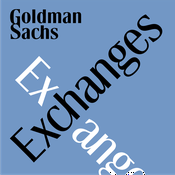303 episodes
- In this episode of Honest Money, Warren Ingram and Pieter de Villiers delve into the intricacies of setting financial goals and the importance of behavior change in achieving them. They emphasize the significance of the SMART framework—Specific, Measurable, Attainable, Relevant, and Time-bound—when defining financial objectives. The discussion highlights how understanding one's financial situation and prioritizing goals can lead to better decision-making and ultimately financial freedom. The hosts also touch on the compounding effect of small, consistent actions over time, drawing parallels between financial goals and other life aspirations, such as health and fitness.
Takeaways:
Introduction to Financial Goals
The SMART Framework for Goal Setting
Understanding Your Financial Situation
Prioritizing Financial Goals
The Importance of Clarity and Budgeting
Automating Your Savings
Aligning Financial Goals in Relationships
Conclusion and Next Episode Preview
Learn more about Prescient Investment Management here.
Send us a text
On the Balance Sheet®
Interviewing executives from community banks and credit unions about key economic issues.
Listen on: Apple Podcasts Spotify
Have a question for Warren? Don't forget to voice note your questions through our WhatsApp chat on (+27)79 807 8162 and you could be featured in one of our episodes. Follow us on Twitter, LinkedIn and subscribe to our YouTube channel for more Financial Freedom content: @HonestMoneyPod - In this episode, Warren Ingram and Pieter de Villiers explore goal setting at the start of the new year, unpacking why New Year’s resolutions so often fail and how social pressure can drive unrealistic expectations. They argue for focusing on fewer, well-defined goals that are specific, measurable, and achievable, rather than trying to change everything at once. The hosts introduce the SMART goal-setting framework and emphasize self-awareness, understanding the deeper “why” behind goals, and making small, incremental changes that compound over time, before previewing a follow-up episode focused on applying these principles to financial goals.
Takeaways
Set one specific goal instead of multiple resolutions.
Understand the deeper motivation behind your goals.
Create systems to support your goal achievement.
Incremental changes lead to significant improvements over time.
Use the SMART framework for effective goal setting.
Learn more about how Curate Investments can help you here.
Send us a text
On the Balance Sheet®
Interviewing executives from community banks and credit unions about key economic issues.
Listen on: Apple Podcasts Spotify
Have a question for Warren? Don't forget to voice note your questions through our WhatsApp chat on (+27)79 807 8162 and you could be featured in one of our episodes. Follow us on Twitter, LinkedIn and subscribe to our YouTube channel for more Financial Freedom content: @HonestMoneyPod - In this episode, Warren Ingram and Pieter de Villiers discuss the critical aspects of exiting a business, including preparation for sale, navigating the transition, and financial planning post-sale. They speak to the importance of understanding the emotional and financial implications of selling a business, as well as the need for proper valuation and tax considerations. The conversation also touches on the challenges entrepreneurs face in retirement and the necessity of adapting to a new financial landscape after selling a business.
Takeaways
The exit is often the culmination of an entrepreneur's life work.
Buyers are emotionally detached; focus on financials.
Proper tax planning is crucial before selling a business.
Understand the true value of your business before selling.
Be clear about your role post-sale and expectations.
Consider the emotional impact of selling on yourself and your team.
Financial planning post-sale requires a different mindset.
Investing after selling a business requires humility and learning.
Seek professional advice for financial planning and investments.
Don't hesitate to ask for help from fellow entrepreneurs.
Learn more about Prescient Investment Management here.
Send us a text
On the Balance Sheet®
Interviewing executives from community banks and credit unions about key economic issues.
Listen on: Apple Podcasts Spotify
Have a question for Warren? Don't forget to voice note your questions through our WhatsApp chat on (+27)79 807 8162 and you could be featured in one of our episodes. Follow us on Twitter, LinkedIn and subscribe to our YouTube channel for more Financial Freedom content: @HonestMoneyPod From Survival to Sustainability: What South African Business Owners Must Get Right
2026/1/03 | 35 mins.In today's episode, Warren Ingram and Pieter de Villiers discuss the critical stages of business maturity, focusing on key considerations for business owners as they transition from survival to sustainability. They cover essential topics such as key person risk, staff compensation, financial health, client engagement, hiring for culture, buy and sell agreements, and the importance of intentional business practices. Our hosts emphasize the need for entrepreneurs to invest in their people and culture, navigate challenges, and plan for the future, including estate planning and remuneration strategies for founders.
Takeaways
You want to make sure at the very least you've got some company life assurance.
You should have a history of paying good sufficient tax.
Don't lose sight of talking to your clients.
You want to be honest about what's going on.
You need to be intentional about what you were doing.
You need to listen to your employees.
The challenges will always be there.
You want that stuff written down.
You should be very intentional now about the transition of ownership.
Learn more about how Curate Investments can help you here.
Send us a text
On the Balance Sheet®
Interviewing executives from community banks and credit unions about key economic issues.
Listen on: Apple Podcasts Spotify
Have a question for Warren? Don't forget to voice note your questions through our WhatsApp chat on (+27)79 807 8162 and you could be featured in one of our episodes. Follow us on Twitter, LinkedIn and subscribe to our YouTube channel for more Financial Freedom content: @HonestMoneyPodGetting the Foundations Right: Financial and Compliance Basics for South African Entrepreneurs
2025/12/27 | 36 mins.In this episode, Warren Ingram and Pieter de Villiers discuss the essential steps and considerations for entrepreneurs who have recently started their businesses. They cover practical aspects such as financial planning, compliance, and the importance of hiring and delegating tasks. The conversation emphasizes the need for a sustainable business structure, effective time management, and the long-term strategy for growth.
Takeaways
Starting a business requires careful planning and consideration.
The early stages of a business are often the toughest.
Financial planning is crucial for business owners.
Don't neglect personal financial responsibilities as a business owner.
Investing in your business can yield higher returns than other investments.
Compliance and tax planning are essential for sustainability.
Building a strong team is vital for business growth.
Effective time management is key to avoiding burnout.
Creating systems and processes can enhance business efficiency.
Long-term strategy is important for future growth and success.
Learn more about Prescient Investment Management here.
Send us a text
On the Balance Sheet®
Interviewing executives from community banks and credit unions about key economic issues.
Listen on: Apple Podcasts Spotify
Have a question for Warren? Don't forget to voice note your questions through our WhatsApp chat on (+27)79 807 8162 and you could be featured in one of our episodes. Follow us on Twitter, LinkedIn and subscribe to our YouTube channel for more Financial Freedom content: @HonestMoneyPod
More Business podcasts
Trending Business podcasts
About Honest Money
Your personal guide to financial freedom, hosted by the bestselling author and award-winning financial planner, Warren Ingram.
Podcast websiteListen to Honest Money, A Bit of Optimism and many other podcasts from around the world with the radio.net app
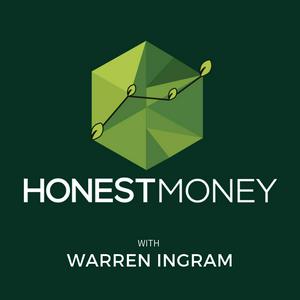
Get the free radio.net app
- Stations and podcasts to bookmark
- Stream via Wi-Fi or Bluetooth
- Supports Carplay & Android Auto
- Many other app features
Get the free radio.net app
- Stations and podcasts to bookmark
- Stream via Wi-Fi or Bluetooth
- Supports Carplay & Android Auto
- Many other app features


Honest Money
Scan code,
download the app,
start listening.
download the app,
start listening.


